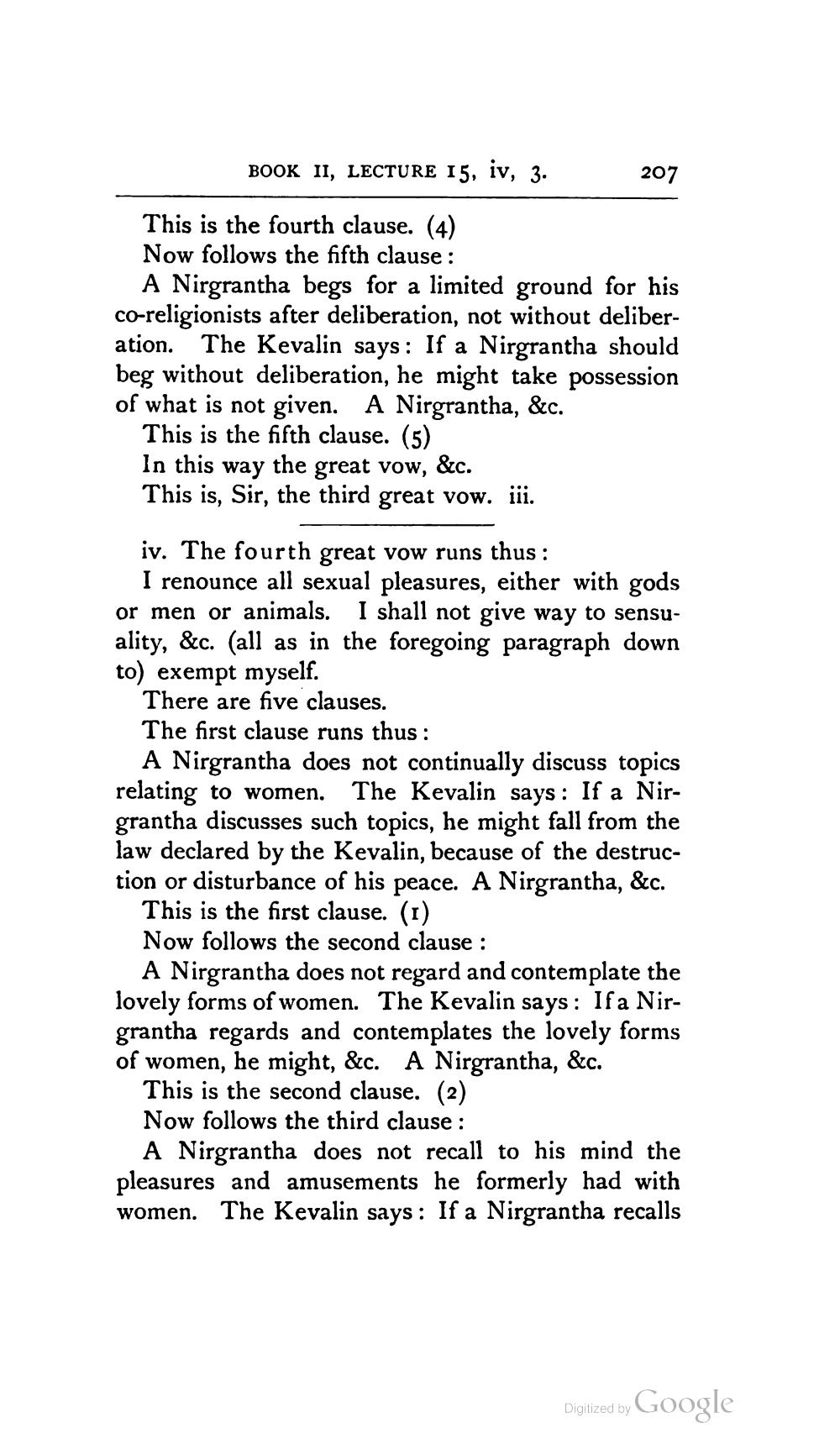________________
BOOK II, LECTURE 15, iv, 3.
207
This is the fourth clause. (4) Now follows the fifth clause:
A Nirgrantha begs for a limited ground for his co-religionists after deliberation, not without deliberation. The Kevalin says: If a Nirgrantha should beg without deliberation, he might take possession of what is not given. A Nirgrantha, &c.
This is the fifth clause. (5) In this way the great vow, &c. This is, Sir, the third great vow. iii.
iv. The fourth great vow runs thus :
I renounce all sexual pleasures, either with gods or men or animals. I shall not give way to sensuality, &c. (all as in the foregoing paragraph down to) exempt myself.
There are five clauses. The first clause runs thus :
A Nirgrantha does not continually discuss topics relating to women. The Kevalin says : If a Nirgrantha discusses such topics, he might fall from the law declared by the Kevalin, because of the destruction or disturbance of his peace. A Nirgrantha, &c.
This is the first clause. (1) Now follows the second clause :
A Nirgrantha does not regard and contemplate the lovely forms of women. The Kevalin says: Ifa Nirgrantha regards and contemplates the lovely forms of women, he might, &c. A Nirgrantha, &c.
This is the second clause. (2) Now follows the third clause:
A Nirgrantha does not recall to his mind the pleasures and amusements he formerly had with women. The Kevalin says: If a Nirgrantha recalls
Digitized by Google




